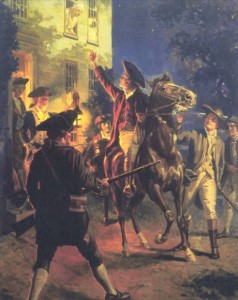When Dwight Eisenhower was Supreme Allied Commander in Europe, he was very concerned with the need to maintain positive relationships among the Allies. General Lord Ismay, in his memoirs, gives some insight into just how seriously Eisenhower took this aspect of command. In one case, following a serious fracas between a British and an American officer:
..(Eisenhower) came to the conclusion, after a careful consideration of all the evidence, that it was the American who was in the wrong. He ordered him to be dismissed from the Staff and sent back to the United States. The British officer who had been embroiled pleaded for him ‘He only called me a son-of-a-bitch, sir, and all of use have now learnt that this is a colloquial expression which is sometimes used almost as a term of endearment, and should not be taken too seriously.’ To which Eisenhower replied, ‘I am informed that he called you a British son-of-a-bitch. That is quite different. My ruling stands.’ (emphasis added)
I was reminded of this story (taken from this post in my Leadership Vignettes series) by Obama’s behavior toward the British, most recently in the case of the BP fiasco. One of the first things he did on assuming office was to send back the Churchill bust in his office. This was followed by the giving of inappropriate and quite narcissistic gifts, and now by the needlessly offensive assault on BP. Eisenhower, the lifelong soldier, evidently understood something about nuance and diplomacy in interpersonal communications. Obama, who has been positioned as a new-age-y kind of guy, more sensitive and diplomatic than the cowboys he replaced, couldn’t even be bothered to select appropriate gifts or to use the proper name of the corporation he was attacking–which has not been “British Petroleum,” either legally or in marketing usage, for quite a while.
The truth is, people who come across as “sensitive” are very often in actuality sensitive to only one set of feelings: their own.
Some links on Obama’s speech last night here.
